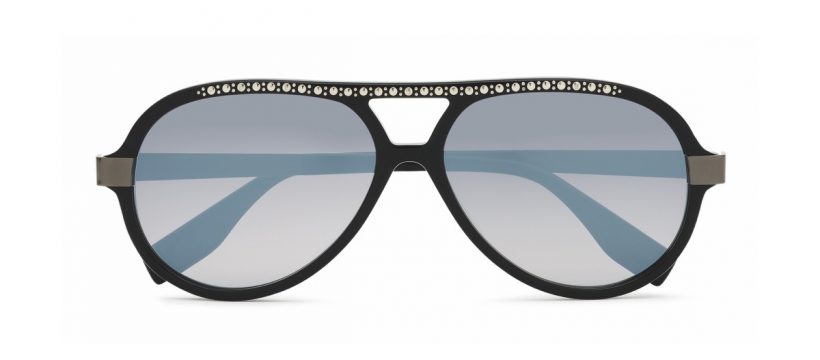Marchon is upping its sustainable ante. The company — one of eyewear’s largest manufacturers that creates licensed goods for brands including Nike, Calvin Klein, Salvatore Ferragamo and Chloé — is now pledging to use a new upcycled material in its products.
Marchon will use a proprietary material called Acetate Renew in its products beginning next year. The upcycled acetate, developed by materials company Eastman, is made via a carbon renewal process that breaks down plastics that are otherwise too difficult to process via conventional recycling practices.
Marchon noted that on a typical eyewear manufacturing line, about 80 percent of sheet acetate is rendered as scrap. These discards will now be upcycled by Eastman rather than hitting a landfill. Marchon’s optical and sunglass styles produced with Acetate Renew will be comprised of 40 percent recycled material and 60 percent “bio-based content,” the company said.
Previous trial runs of upcycled acetate have not proven as strong or aesthetically similar to new materials, but Marchon and Eastman claim that Acetate Renew is “identical” to fresh plastics.
Marchon will roll out Acetate Renew in its Italian manufacturing hubs in January and hopes to expand the program to its Asian production centers as supply of the material is scaled. The company said it is presently unclear what percentage of Marchon products will eventually be made with Acetate Renew material.
“This collaboration with Marchon marks a significant milestone for advancing a circular economy for the eyewear industry,” said Scott Ballard, vice president and general manager for Eastman Specialty Plastics. “With Acetate Renew, Eastman combines its 80-year history of material innovations for eyewear with technologies that help ensure the industry’s sustainability in the 21st century.”
Nicola Zotta, president and chief executive officer of Marchon Eyewear Inc., said, “As the first eyewear manufacturer to collaborate with Eastman, this relationship will be beneficial for us, as it will significantly reduce waste and greenhouse gas emissions, while maintaining our commitment to safety and sustainability without compromising the quality of our frames.”
Source: Read Full Article
